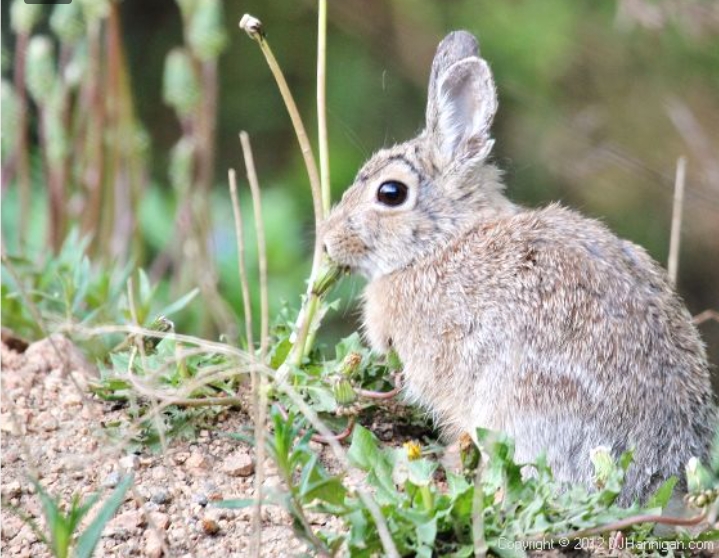Rabbits’ alarming appearance
Some rabbits in Colorado, especially around Fort Collins, have been spotted with unusual “tentacle-like” or “horn-like” growths protruding from their heads and faces.
These growths have been described as resembling black quills or toothpicks sticking out around their mouths or faces.
Colorado Parks and Wildlife (CPW) has confirmed that these growths are caused by a virus known as the Shope papilloma virus.
This virus causes wart-like protrusions on the rabbits’ heads or faces that can sometimes look like tentacles or horns.
The growths are somewhat similar to benign cancerous cells and, unfortunately, there is no known cure for this condition.
The virus spreads only among rabbits and is transmitted by biting insects such as mosquitoes and ticks. It is not contagious to humans, dogs, or other animals.
While these growths do not usually harm the rabbits, they can become problematic if they develop near sensitive areas like the eyes or mouths.
Wildlife officials advise people to avoid approaching, touching, feeding, or handling these infected rabbits.
The recommended approach is to give the rabbits space and allow nature to take its course.
The tentacle-like growths in Colorado rabbits are caused by Shope papilloma virus.
These growths appear as wart-like, horn or tentacle-like protrusions.
The virus spreads among rabbits via biting insects.
It is not contagious to humans or pets.
The condition has no cure, but generally does not severely harm the rabbits unless growths impede key areas.
Wildlife officials advise avoiding contact and letting nature handle the situation spontaneously.
This phenomenon has been causing concern due to the rabbits’ alarming appearance, but the health risk to humans and pets is considered negligible









